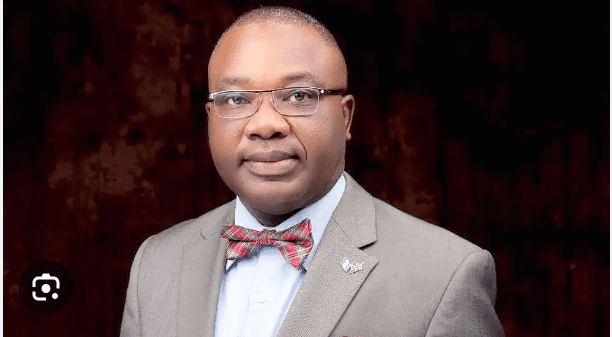The National Human Rights Commission has attributed the kidnapping of 286 students and teachers from two schools in Kaduna to the failure of the national law enforcement system in Nigeria.
This information was shared by the executive Secretary of the commission, Anthony Ojukwu, during a discussion at a meeting on state police organized by the Rule of Law and Accountability Advocacy Centre in Abuja.
As reported by The PUNCH, armed individuals attacked the Kuriga area of the Chikun Local Government Area of Kaduna State about a week ago, shooting at people indiscriminately before taking away the victims.
The incident has sparked national outrage, with Jama’atu Nasril Islam, Amnesty International, the Parents-Teachers Association of Nigeria, Nigeria Union of Teachers and the House of Representatives condemning the attack.
However, Ojukwu emphasized that such a tragedy could have been prevented if the country had not prioritized the protection of the wealthy and influential in society at the expense of the masses.
This was even as the human rights advocate called for the introduction of state police to address banditry and other security challenges plaguing the country.
He stated, “Insecurity in this country is a result of poor governance. There is no debate about that. However, do we have to wait until there is good governance? Even in societies with good governance, they take security seriously. We are at a point where every aspect of our lives as Nigerians is not functioning. For me, the greatest appeal was the issue of state police addressing insecurities.
“We have many complaints about the national police. Look at the origins. It started as something the colonial masters introduced to force us to pay taxes. So from the beginning, it was formed to protect the authorities.
“When we gained independence, there was no concerted effort to reorient the Nigerian police. That was the problem. These individuals are simply protecting the elite, especially the executive and legislature. Governors have a convoy of 1,000 policemen, leaving the rest of us unprotected.
“That is why you can travel on a 10km road and not see a single policeman. That is also why you can enter a secondary school and take away 282 students. Do you even realize what 282 students look like? If you want to bring in luxury buses, you would need about three or four of them to transport them. And if you decide to use motorcycles, you would need about 200 to abduct these children.
” How did these people carry it out without being noticed? Well, I am not a data analyst. But from what I heard, the number of policemen guarding all these wealthy individuals is much more than the ones left to look after the rest of us.”
Expanding on his point, the NHRC chief mentioned that unless the entire national policing system is overhauled to make way for state police, isolated cases of abduction and other forms of insecurity may persist.
According to him, it was the same systemic failure of the police after years of oppression that led to the “EndSars revolution that nearly crippled the nation’s security apparatus.
“That's why they mistreat us and do all sorts of things to us. That's exactly why we had to participate in the #EndSars protest in 2020. As a human rights worker, I got frustrated and asked, 'Can this policing system ever be fixed or do we have to completely replace the entire police force and start again? We keep hearing they need training. But these officers have been trained multiple times with different manuals, yet it's not effective.
“That's why I believe we can determine how this state police will be. It's in our control. We will create the laws and rules to oversee the state police. We can even establish a policy that before the state police can arrest anyone, there must be an intelligence investigation report stating that the initial inquiry has been conducted and this person is likely to have done something wrong.”
A professor of Criminology and Sociology of Law at the University of Jos, Prof Etannibi Alemika, however, disagreed with him on the need to introduce state police.
The don wondered why Nigerians should be discussing deploying police at the state level when it is evident that their functions would be taken over by the governors and influential figures within their areas.
“I can give you several reasons why state police won’t work. For instance, are you aware recruitment of officers will be dominated by indigenes of each state? What this also means is that a place like Lagos will probably have over 45 per cent of officers coming from people in that state. Think about it.
“It is also possible for people like me if I am from Kogi but living in Abuja to return and take a prominent role at the expense of those who are residents there. Instead, why are people not talking about policing at the local government level instead of the states”, he queried.



